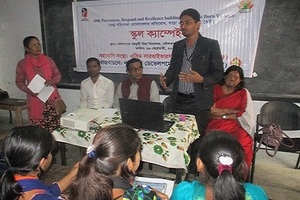
by ASF | Mar 2, 2020 | Latest News & Events
A School Campaign event held in Daulatpur Bohumukhi High School of Belkuchi Union in Sirajganj district on 19 February 2020. It was organized by National Development Program (NDP) with the support of Acid Survivors Foundation (ASF). The project has been financed by Manusher Jonno Foundation/UK-Aid. Students, teachers, Project Officer of NDP and representatives of ASF attended in the event. The main purpose of the school campaign was to create awareness among the students about the consequence and horrors of acid, its Acts and punishment. Students and teachers of the school have become aware and learned more about gender-based violence through attending this awareness campaign.
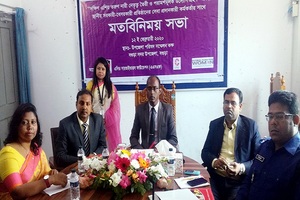
by ASF | Feb 12, 2020 | Latest News & Events
বগুড়া সদর উপজেলা নির্বাহী কর্মকর্তা ও নির্বাহী ম্যাজিষ্ট্রেট আজিজুর রহমান বলেছেন, প্রশাসনের জিরো টলারেন্স ভূমিকায় বর্তমান বাংলাদেশে অবৈধভাবে এসিডের অপব্যবহার রুখে দেওয়া হয়েছে এবং বর্তমানেও এর বিরুদ্ধে প্রশাসন কঠোর রয়েছে। কিন্তু যারা পূর্বেই এর শিকার হয়েছে তাদের পুনর্বাসনে সকলকে এগিয়ে আসতে হবে। আর এক্ষেত্রে বগুড়ায় এসিডে আক্রান্তের শিকার অসহায় মানুষদের উপজেলা প্রশাসনের পক্ষ থেকে সর্বোচ্চ সহযোগিতা নিশ্চিত করা হবে।এসিড সারভাইভারস ফাউন্ডেশন (এএসএফ) এর আয়োজনে বুধবার সকালে সদর উপজেলা পরিষদ সভাকক্ষে দক্ষিণ এশিয় তরুণ নারী নেতৃত্ব তৈরি ও পরামর্শমূলক উদ্যোগ গ্রহণ প্রকল্পের আওতায় স্থানীয় সরকারি-বেসরকারি প্রতিষ্ঠানের সেবা প্রদানকারী কর্মকর্তার সাথে মতবিনিময় সভায় প্রধান অতিথির বক্তব্যে সদর ইউএনও এসব কথাগুলি বলেন।
সভায় স্বাগত বক্তব্য রাখেন এএসএফ প্রতিনিধি রুনা লায়লা এবং ভিডিও চিত্র প্রদর্শনের মাধ্যমে সার্বিক কার্যক্রম পরিবেশন করেন তরুণ নারী নেত্রী নুসরাত জাহান। সভায় মুক্ত আলোচনায় বক্তব্য রাখেন ফুলবাড়ি পুলিশ ফাঁড়ির ইনচার্জ ইন্সপেক্টর শফিকুল ইসলাম, উপজেলা সমবায় অফিসার আতিকুর রহমান, উপজেলা সমাজসেবা কর্মকর্তা আতাউর রহমান, উপজেলা যুব উন্নয়ন কর্মকর্তা নাজিয়া শামস্, শিশু ও যুব সংগঠক সঞ্জু রায়, লাইট হাউজের রাকিবুল ইসলাম খান, ব্রাকের প্রতিনিধি মাসুদ রানা, সংস্থার তরুণ নেত্রী সুরাইয়া আক্তার, ছায়া আক্তার এবং রফা ইসলাম।
উল্লেখ্য, এএসএফ সংস্থাটি ১৯৯৯ সাল থেকে বাংলাদেশে চিরতরে এসিডের সহিংসতা বন্ধে কাজ করে যাচ্ছে যার আওতায় এসিড আক্রান্তদের বিনামূল্যে চিকিৎসা সেবা প্রদান, পরোক্ষ আইনি সহায়তা প্রদান, পুনর্বাসন এবং জীবনমান উন্নয়নে ভূমিকা রাখা, শিক্ষা সহায়তা এবং আয়বৃদ্ধিমূলক কর্মকান্ড পরিচালনাসহ এই সহিংসতার শিকার ব্যক্তিদের অন্ধকার থেকে বের হয়ে আলোর পথে নিয়ে আসতে প্রশিক্ষণের ব্যবস্থা করে আসছে। এখন পর্যন্ত বগুড়ায় প্রায় ১৫৭ জন বিভিন্ন কারণে এসিড সহিংসতার শিকার হলেও গত ৫ বছরে এই হৃদয়বিদারক সহিংসতা বগুড়ায় সংগঠিত হয়নি।
Source: pundrokotha
by ASF | Feb 3, 2020 | Latest News & Events
ASF attends a half-day event hosted by Sirajganj’s National Development Program (NDP) to speak to local news reporters around burn violence in Bangladesh. ASF and NDP has a partnership project funded by Manusher Jonno Foundtion (MJF) called “Prevention, Respond, Resilience Building to Address Burn Violence”. This event is a bi-annual event to report on the project’s progress and engage in conversations for further collaboration work between all stakeholders.
সিরাজগঞ্জে এনডিপি’র উদ্যোগে এসিডদগ্ধ সহিংসতা রোধকল্পে সাংবাদিকদের সাথে মতবিনিময় সভা অনুষ্ঠিত ।
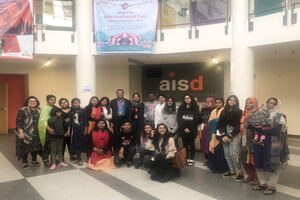
by ASF | Feb 2, 2020 | Latest News & Events
The American International School of Dhaka (AISD) invited ASF for a half-day annual Meet-and-Greet involving the student volunteers and ASF’s staff who are survivors. The day comprised of an ASF presentation, round-table of introductions, recreational time in the school’s grounds and lunch. It was a fantastic opportunity for the students to meet the survivors and learn more about the agency’s work and how students may further help in getting involved. Thank you AISD, and a special thanks to the club’s leaders and Sabahat (the club’s Coordinator) for organising this!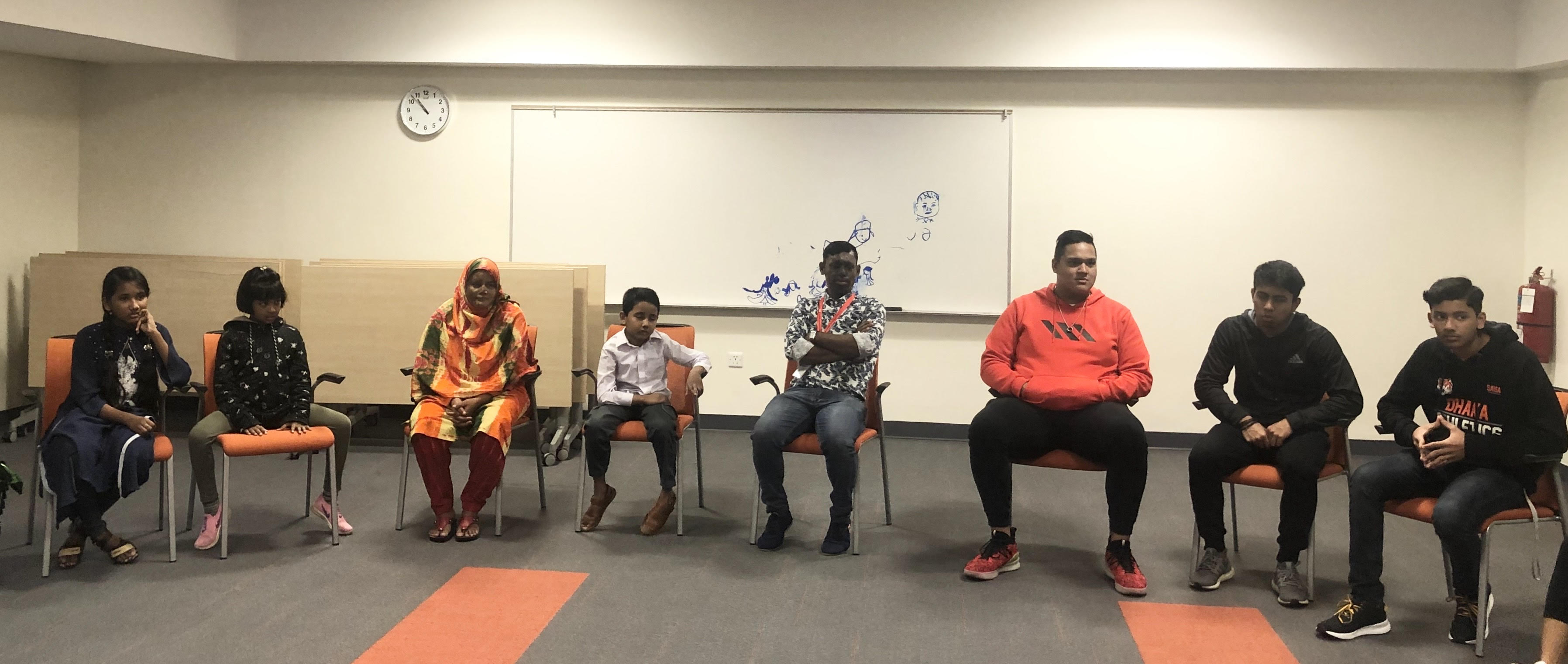
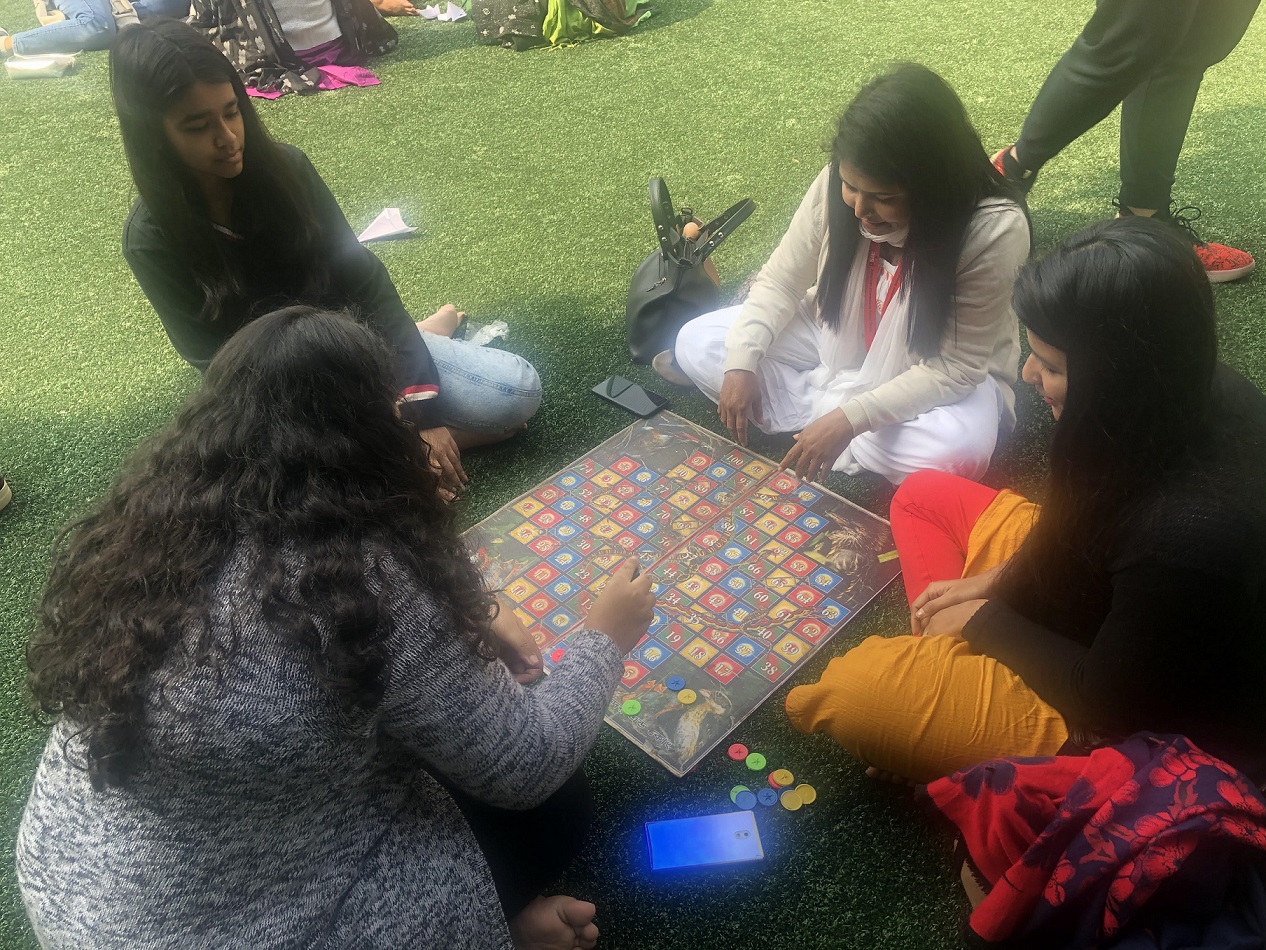
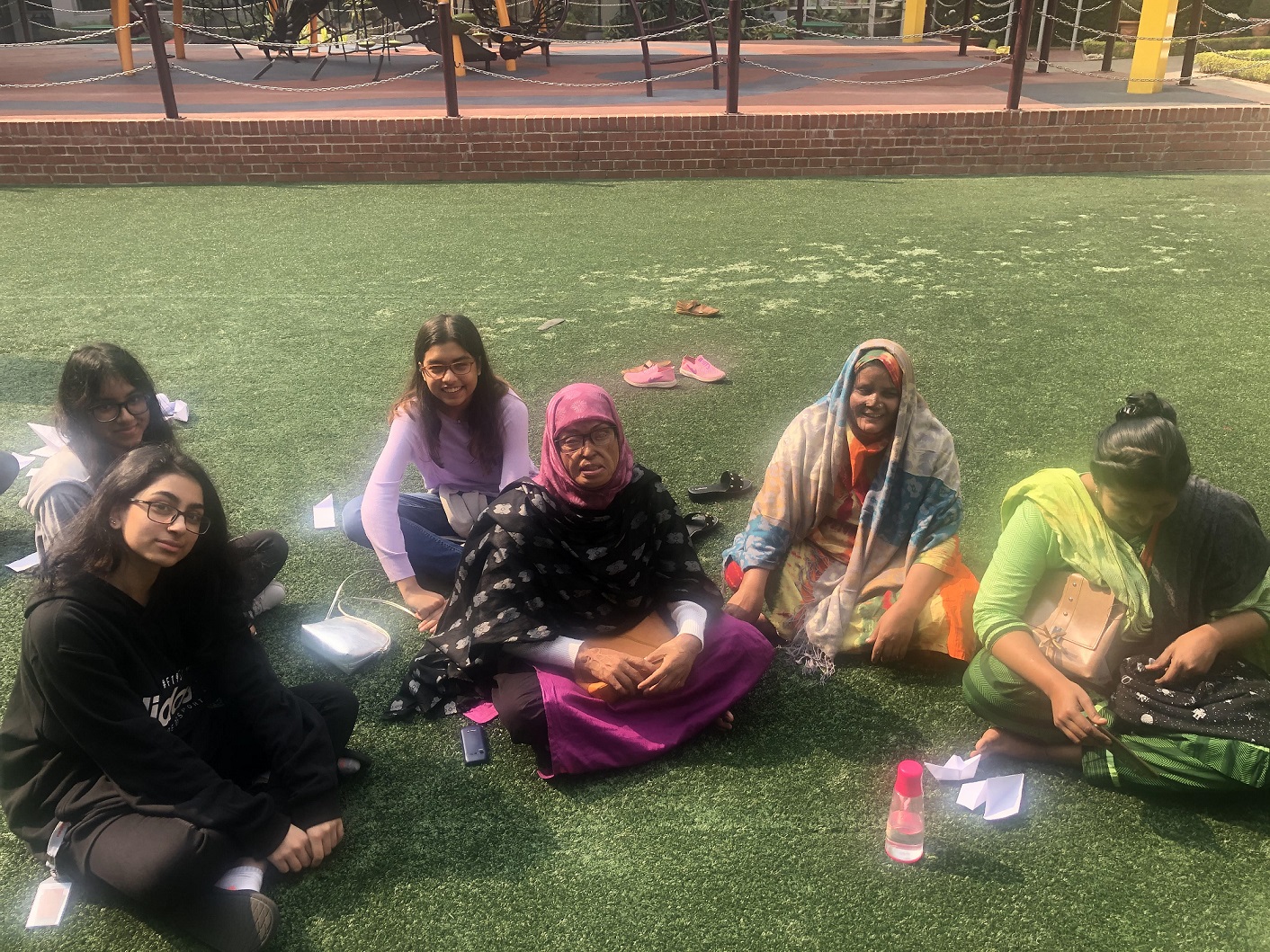
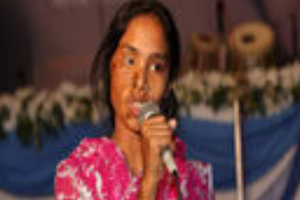
by ASF | Jan 12, 2020 | Survivors Story
Surma Begum with unusual resilience and recovery
Surma’s case is unique in the case files at ASF for her unusual resilience and tenacity in the face of extreme adversity. While many acid survivors come from poor socioeconomic conditions, Surma faced extreme poverty and neglect as a child. Her father left her and her mother when Surma was born, and two months later, after her mother remarried, Surma was mostly neglected and forced to survive off the charity of others. Attacked when she was only 15 years old in 2001, when she refused the romantic advances of a neighborhood boy, Surma’s prospects were even bleaker. Her chances to use marriage as a way to a better life were greatly diminished, as it was uncertain whether or not she would be able to find a husband who would be willing to overlook her disfigurement. Surma’s attacker left her with severe burns on the right side of her face, eye, and body, blinding her right eye. Due to the extreme nature of her burns, no one could anticipate how her life would commence, with untold numbers of surgeries in her future and extreme financial constraints—the most optimistic prognosis would be a life where Surma is able to scrape by and survive on a meager income and the generosity of strangers and the local community. The attack left wounds so severe that she required an extensive stay at Dhaka Medical College Hospital, after which she was brought to ASF for further treatment and rehabilitation. At ASF, Surma began employment training and is currently working in a school for disabled people in Bhola. Financial independence is a crucial step in the rehabilitation process for survivors, who often lose their means of subsistence due to the attack. However, due in part to her work with ASF, Surma was able to turn her life around in significant ways. In 2005, four years after the incident, Surma got married, and she and her husband are now the proud parents of a six-year-old boy. Surma’s life had been on a proscribed downward spiral after her attack, but just a few years later, she was quickly on track to becoming one of ASF’s success stories—Surma has gone from living on the extreme margins of Bangladeshi society as an abandoned and family-less girl, to becoming a self-sufficient mother with bright dreams for her son. Managing to become financially viable, and married with a family, Surma was able to overcome two of the most obstinate hurdles that face acid victims after their attacks. Surma’s story is representative of many other survivors’, but her case is also special for the unusual resilience and recovery that Surma has managed to attain despite the enormous setbacks and consequences of the violence she has suffered. An empowered figure for survivors everywhere, Surma is a beacon of hope for those who have been egregiously abused and seek to overcome trauma in their lives. Despite her seemingly idyllic ending to a tragic event, Surma does continue to struggle with the ramifications of her disfigurement and disability. Though married to a man who was willing to overlook her appearance, Surma struggles with maintaining a happy marriage and relationship with her in-laws, fearing that they do not like her and judge her for the attack. Furthermore, Surma’s husband took it upon himself to marry a second wife, who soon left the house and abandoned the family. Surma’s husband blamed her for his second wife’s escape, and this issue has created enormous tension and anxiety in the domestic unit. Left to ponder how she could have caused such misfortune, Surma now faces the complex consequences of the long-term effects of her status as ‘survivor’; the questions and issues that arise from this status reach far beyond treatment and rehabilitation, and beg to be understood as a phenomenon that will forever alter a woman’s life and her prospects for happiness. Despite marital turmoil, these days, Surma’s life is occupied with the happy tasks of educating her son, who she hopes will one day use his talent for math to become an accountant, and working as an advocate for marginalized women’s groups. In 2006, Surma was granted a parcel of land from Daily Prothom Alo, one of Bangladesh’s daily newspapers, from a fund specifically set up to help enfranchise women who have been attacked with acid. Surma’s plan for this land includes constructing a center where she can aid other survivors of violence in their recovery, and be an example of hope to all who have all who have experienced adversity.








